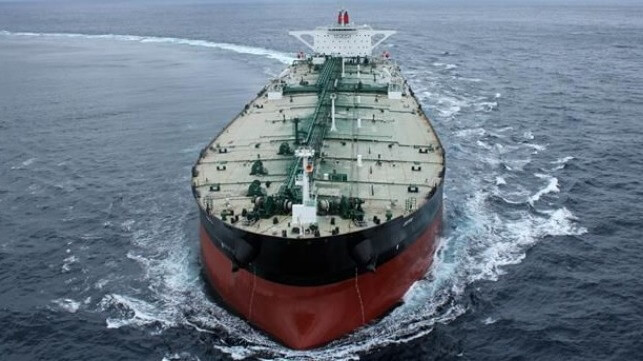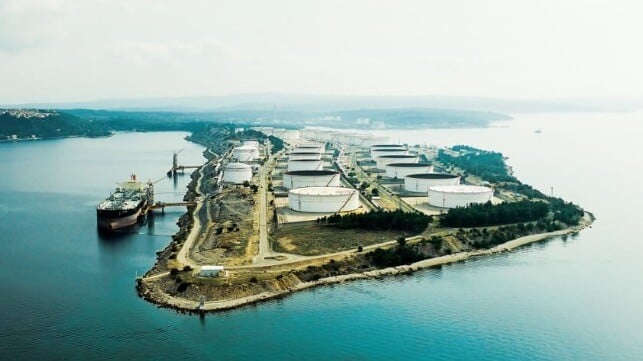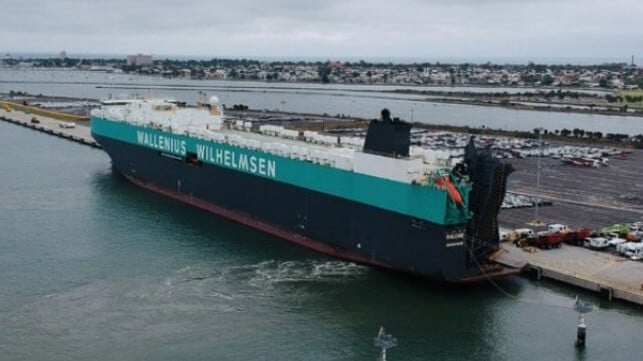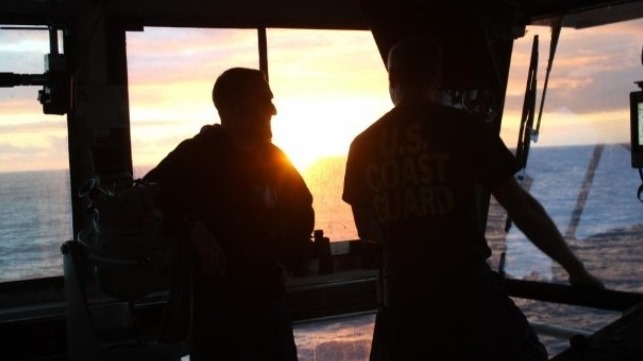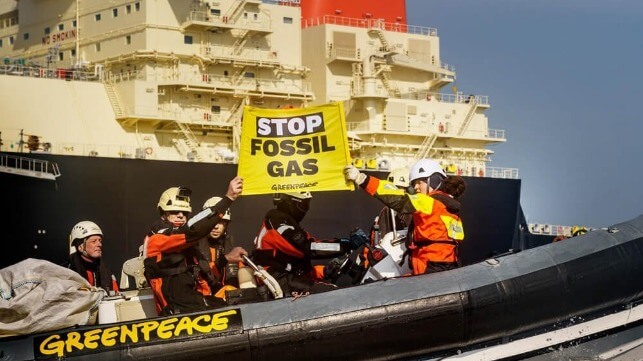Designs for CO2 Carrier and Floating Storage Using Elevated Pressure
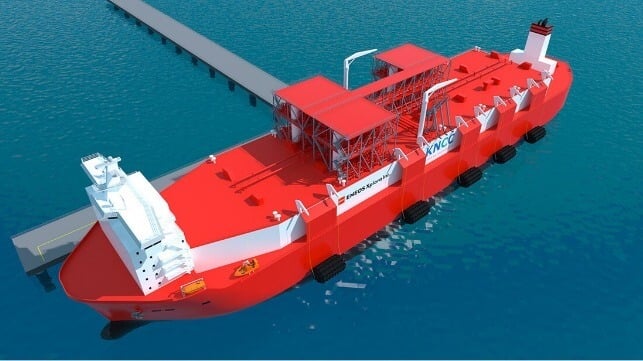
Knutsen NYK Carbon Carriers, a subsidiary of NYK and Knutsen Group reports it is moving forward in the development of its concepts for the transport and storage of carbon as part of the emerging CCUS (Carbon capture, utilization, and storage) sector. The company obtained Approval in Principle (AiP) from ClassNK for the design of liquified CO2 carriers as well as the floating liquified storage facility that would work in conjunction with the vessels.
While CCSU is expected to play a role in achieving carbon neutrality, the companies highlight that significant challenges remain to develop large-scale operations and lower the costs associated with the process. They highlight the issues that need to be addressed in developing the operations, including reducing overall costs and securing land for liquefaction and storage facilities.
The joint venture company was launched by Knutsen and NYK in January 2022 focusing on the commercial development of a liquefied CO2 marine transportation and storage business. To address the challenges, they are focusing on using the elevated pressure (EP) method to store and transport liquefied carbon dioxide (LCO2) at ambient temperature. Coupled with the vessels is the terminal concept with the companies saying by utilizing an FLSU (Floating Liquefied Storage Unit), the cost of CO2 liquefaction and the land area required onshore in the CCUS value chain can be reduced, expanding the possibilities for realizing CCUS.
ClassNK has carried out a design review of the ship which would use LCO2-EP Cargo Tank technology developed by Knutsen to transport LCO2 in a stable state. Since there is no need to cool LCO2 to cryogenic temperatures, Knutsen says it is easy to handle and potentially reduces energy and costs during liquefaction. It reports the LCO2-EP Cargo Tank has been developed to transport LCO2 at ambient temperatures and elevated pressures (0 to 10 degC / 34 to 45 barG). The companies reporting in December 2024 that the construction studies had started for the vessel.
NYK and KNCC also worked with ENEOS Xplora in developing the FLSU concept that combines the LCO2-EP Cargo Tank technology with the Isenthalpic Expansion Cooling & Liquefaction Process. According to the companies, this process has been researched and developed in collaboration among the three companies while ClassNK issued an AiP following a review.
They call the FLSU a pioneering concept explaining that it liquefies and temporarily stores CO2 that has been collected and transported as gas in an onshore facility making it ready for further transport by LCO2 carrier. By utilizing the features of the EP method, which has the potential to reduce the energy required for liquefaction, and adopting the process, which is expected to be simpler and more compact than conventional cooling methods, it has become possible to install a liquefaction plant on a floating structure.
Development of the concepts comes as the first commercial CO2 transport and storage operations, Northern Lights a joint venture between Shell, Equinor, and TotalEnergies is set to start operations this summer. It has taken delivery of two dedicated LCO2 carriers and today, March 27, reported it has also decided to proceed with an expansion raising capacity from 1.5 million to a minimum of 5 million tonnes of CO2 per year.
Other projects are moving forward with both the UK and Denmark reporting a strong response to their offering potential storage sights. Royal Wandborg also reports it has reached a milestone in the construction of its EasyMax CO2 carrier as the hull sections are being assembled. It will be the first CO2 carrier built in Europe to serve the growing potential market.

